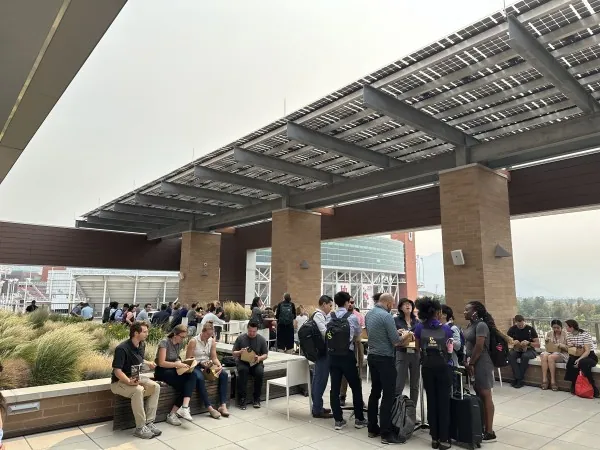
A Deep Dive into Diabetes: Research Breakthroughs Unveiled at the University of Utah's Record-Breaking Retreat
2024-10-08
Author: Mei
In an extraordinary gathering, the 2024 Diabetes and Metabolism Research Center (DMRC) retreat at the University of Utah attracted over 200 attendees, marking it as the largest turnout in its history.
This expansive array of researchers and scientists explored diverse topics that ranged from online grocery shopping to the intriguing biology of venomous snails and foot biomechanics.
The retreat served as a crucial platform to address the alarming rise of diabetes in the U.S., where about 15% of adults are affected by the disease.
Despite heightened awareness, the prevalence of diabetes continues to increase at an unprecedented rate, underscoring the urgent need for multifaceted solutions.
Scott Summers, PhD, co-director of the DMRC and chair of the Department of Nutrition & Integrative Physiology, emphasized the importance of community engagement in addressing this public health crisis. “This is the one time we get together every year to celebrate the breadth of the terrific research being done here,” Summers stated in his opening remarks.
Innovative Policy Solutions and Behavioral Interventions
Numerous presentations focused on the impact of environmental and behavioral factors on diabetes and metabolic disorders.
Researchers discussed policy solutions designed to facilitate healthier lifestyle choices and enhance treatment accessibility.
Notably, Jennie Hill, PhD, is working on improving the Women, Infants, and Children (WIC) program by making benefits available through online grocery shopping to address barriers such as transportation and stigma.
Hill believes that improving existing programs can exponentially benefit community health.
The focus on collaboration also emerged prominently, as seen in the work of Katie Baucom, PhD, who aims to enhance engagement in type 2 diabetes prevention programs by involving participants’ romantic partners.
She highlighted the opportunity to harness partner support as a pivotal factor for successful lifestyle changes.
Meanwhile, Caitlin Golden, PhD, is empowering community members in remote areas to implement family healthy weight initiatives, which signals a shift towards localized health interventions.
Groundbreaking Biological Research
The retreat also showcased groundbreaking biological research aimed at uncovering risk factors and potential drug targets for metabolic disorders.
Helena Safavi-Hemami, PhD, highlighted her investigations into “doppelganger toxins” from venomous species, revealing how these potent biological agents could inspire novel diabetes medications.
In an effort to address disparities in health outcomes, Jacob Taloa, a research associate in the Molecular Medicine Program, is studying the genetic underpinnings of diabetes and kidney disease in Samoan and Tongan populations.
“While we are often portrayed in entertainment, the harrowing health statistics of our community rarely get the attention they deserve,” Taloa remarked, emphasizing the need for targeted research to unveil root causes.
Jenna Burnett, PhD, is conducting innovative studies on biomechanics, focusing on how walking affects foot temperature regulation—a critical aspect for individuals with diabetes.
Her research aims to identify the factors that lead to temperature variations in the feet, which could subsequently inform preventative strategies.
As the retreat showcased an impressive collaboration of ideas and research, it underscored the reality that combating diabetes must be a team effort, amalgamating various disciplines and expertise.
With each breakthrough, the fight against this chronic disease becomes increasingly robust, reflecting hope for better health outcomes through community action and scientific discovery.
Stay tuned as we continue to follow these pioneering efforts in diabetes research and their potential impact on public health!



 Brasil (PT)
Brasil (PT)
 Canada (EN)
Canada (EN)
 Chile (ES)
Chile (ES)
 España (ES)
España (ES)
 France (FR)
France (FR)
 Hong Kong (EN)
Hong Kong (EN)
 Italia (IT)
Italia (IT)
 日本 (JA)
日本 (JA)
 Magyarország (HU)
Magyarország (HU)
 Norge (NO)
Norge (NO)
 Polska (PL)
Polska (PL)
 Schweiz (DE)
Schweiz (DE)
 Singapore (EN)
Singapore (EN)
 Sverige (SV)
Sverige (SV)
 Suomi (FI)
Suomi (FI)
 Türkiye (TR)
Türkiye (TR)